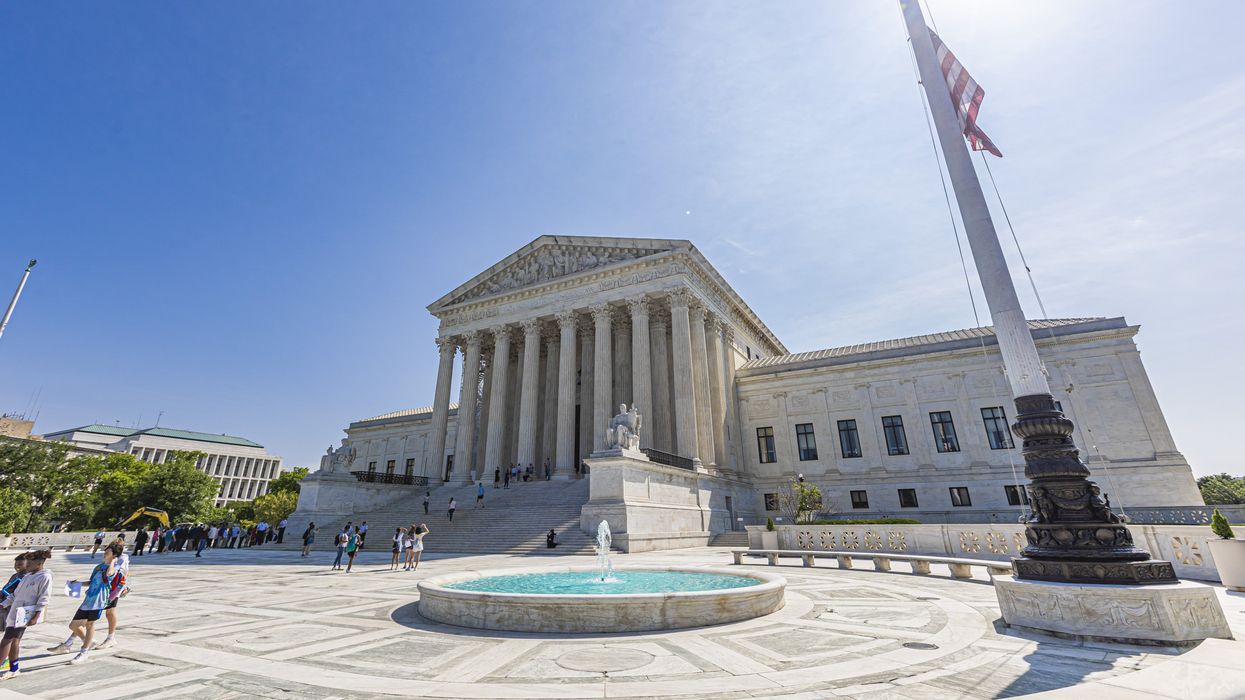On May 15 the Supreme Court directed Louisiana to move forward with two majority-Black districts. The ruling allows the state to use a new congressional map for the 2024 elections.
The Supreme Court ruling overturns a lower federal court decision that barred the state from using the new map on the grounds that state legislators had relied too heavily on race when the lines were drawn earlier in the year. This ruling was unsigned, which is the custom in emergency applications to the Supreme Court. The action was taken after state Attorney General Elizabeth Murrill urged the Supreme Court to act quickly since the Louisiana secretary of state indicated that May 15 was the deadline to prepare for the 2024 elections.
“This year, [Black voters] will have the opportunity to elect a candidate of their choice in two of the state’s six congressional districts as Section 2 of the Voting Rights Act requires,” Marina Jenkns, executive director of the National Redistricting Foundation, said after the ruling was issued. “What unfolded in Louisiana underscores that anti-democratic forces will continue to do all they can to gerrymander, and we must remain vigilant, but today they have again been stopped. Tomorrow, the fight to protect the Voting Rights Act will continue.”
The ruling is particularly impactful given the slim, four-seat majority the Republicans have in the House of Representatives and the likelihood that the additional Black district will elect a Democrat.
Gerrymandering reform has long been a top priority of the democracy reform movement. While this Supreme Court ruling is not a legislative reform, it is consistent with the goals of the movement. Reformers have long argued that the redrawing of congressional lines to satisfy partisan goals must stop in order to have more competitive congressional elections. According to polls, 81 percent of Americans said they’d like to end partisan gerrymandering and stop the manipulation of congressional district lines that it brings.
Reformers are working on a variety of proposals to ensure that redistricting commissions are truly independent and free of political influence. This could be done if the commissions included members of several parties and represented independent votes and if enforceable standards were established for district maps.
Most Americans oppose partisan gerrymandering, but half do not know whether the practice occurs in their states.
The Fulcrum will continue its coverage on this critical issue to keep the public informed. We previously reported:
Two-thirds of Americans told pollsters for The Economist and YouGov that states drawing legislative districts to favor one party is a “major problem” with just 23 percent saying it’s a “minor problem.” But 50 percent said they do not know whether districts are drawn by the legislature or an independent commission in their own state.
We will continue to identify the worst gerrymandering districts and to keep our readers informed of pending and adjudicated court rulings.
While the districts certainly may have changed in the latest round mapmaking, the depth of the problem has not. Both Democrats and Republicans continue to design maps to ensure that their party maintains power.
Every 10 years, states draw new congressional and state legislative district lines. Often, mapmakers engage in gerrymandering — drawing lines in a way that artificially advantages one person, party or group over another. The anti-corruption group RepresentUs explains the ensuing problem:
“Instead of voters choosing politicians, it’s the other way around – politicians are choosing their voters. They do it by gerrymandering voting districts to guarantee their own re-election. That’s corruption at the core of our political process.”
Former Attorney General Eric Holder, who launched a anti-gerrymanding organization that primarily helps Democrats, had this to say:
“This is an unequivocal victory for Black Louisianians, who have fought tenaciously for the equal representation they deserve as American citizens. The state, consistent with the law, will now have a second Black opportunity district in its congressional map this fall. It is also a clear message to those who intend to gerrymander in order to increase their illegitimate power at the expense of voters of color: you will be stopped.”




















